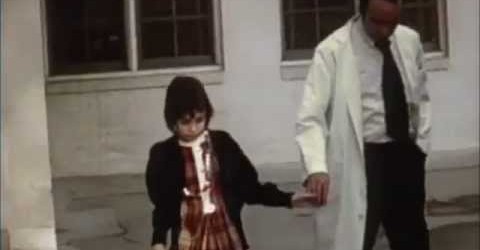The last blog entry regarding the effects of maltreatment on brain development reminded me of a documentary I’d watched as a teen. It was ostensibly about a wild or feral child (i.e. those recognised as living with little or no human contact) and the impact that this had upon language acquisition. The term wild child, however, in this particular case is an offensively anodyne way to describe the emotional and physical abuse this child suffered. The isolation she endured was not some accident of birth but imposed upon her by the deeply damaged man that she had the misfortune to call her father. He constructed an existence for her that the average mind would struggle to conceive. This child became known to the world as Genie. (The long and arduous history of her journey is expanded upon in impressive detail in the Wikipedia link below. Its author is to be commended for the sheer depth and investigative quality of the article).
Genie’s plight came to light on 4 November 1979 when her mother, looking for the benefits’ office inadvertently stumbled into the social services’ offices next door. This was the beginning of a journey that would uncover a decade of unimaginable isolation, most of it tied to a potty chair in one small dark room in which the only freedom available to her were tiny movements of her hands and feet. But even these unbearable restrictions did not go far enough for her father. He was a man pathologically sensitive to noise and sought to minimise it in all forms. Should Genie cry out for food or articulate her fears his response was to beat her. Indeed, he forbade any talking within the household without express permission. As a result Genie’s brother and mother rarely spoke to her. On the infrequent occasions her father did acknowledge her existence it was only to bare his teeth and growl. The precise reason for this is unknown.
As social services became involved so did the scientific community. Genie became the subject of intense interest. Her case was one of the first to put a critical theory about human development to the test. Could a child reared in isolation and deprived of nearly all stimulation develop language? It is worth noting here that this does not correlate directly. Genie was isolated, but her environment was restricted in ways that went far beyond human interaction. It was one that discouraged almost any interactions. The effect of this simply cannot be overstated. Her identification of the world was so closely bound with the darkened and empty two by two metre room in which she had lived her entire life that she could not focus beyond the confines of this space. The doctors could determine no physical defects that might account for this inability. A greater question perhaps, and one sadly that would not be realised, was could a nurturing and loving environment eclipse such a past?
